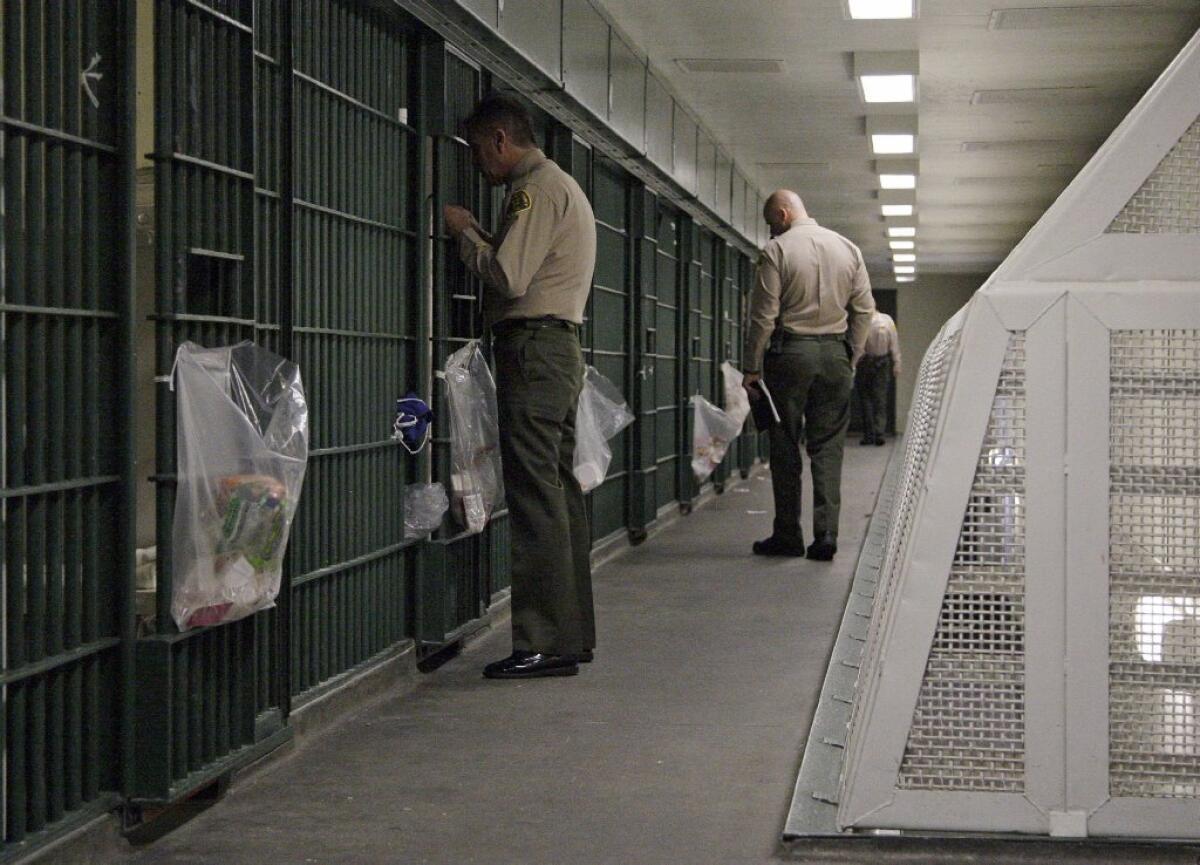Editorial: What Sheriff Baca did right

- Share via
As Los Angeles County sheriff, Lee Baca was roundly and rightly criticized for his failure to prevent or correct the abuse of jail inmates over the course of his 15 years in office, most notably during the final few years of turmoil that culminated in the indictment of 20 deputies and Baca’s resignation. It is not uncommon, when a controversial figure leaves power, for critics to denigrate every aspect of his tenure and leadership philosophy, and it would be easy to write off anything that happened at the jails on Baca’s watch as being a disaster that must be reversed at the earliest possible moment.
So it is encouraging that some (although by no means all) of the candidates to succeed Baca have given at least lip service to what by rights should be his most enduring positive legacy: education-based incarceration.
Baca did not invent the notion that jail time should be used constructively. Incarceration in the United States has oscillated between punishment for its own sake and rehabilitation, redemption and successful reentry into society.
Nor are the particular education programs Baca put in place at the jails — the curriculum, the staffing, the tracking of outcomes — necessarily the right ones, although there are some impressive anecdotal stories of success.
Baca’s contribution was an attitude adjustment — a rethinking and reorientation of his job as sheriff. He said he had committed himself to ensuring that his captive audience of inmates would use their year or two (on average) in lockup to begin focusing on the mind-set that landed them in jail and learning basic literacy and other skills that would give them a stake as law-abiding members of society.
Voters should be wary of calls for the Sheriff’s Department to adopt a “back-to-basics” approach, if that term means abandoning all but traditional notions of policing and jailing. Unlike police departments, whose primary function is keeping the peace and arresting criminals, and unlike state prisons, whose job has traditionally been to segregate dangerous people from the rest of society, a Sheriff’s Department in a county the size of Los Angeles has a leading role in pulling inmates out of the cycle of offending and returning to jail.
It is time now for candidates to go beyond lip service — beyond a grudging or pious acknowledgment that there may be something to education-based incarceration — and produce an assessment of the current programs and a blueprint for improving them.
More to Read
A cure for the common opinion
Get thought-provoking perspectives with our weekly newsletter.
You may occasionally receive promotional content from the Los Angeles Times.






